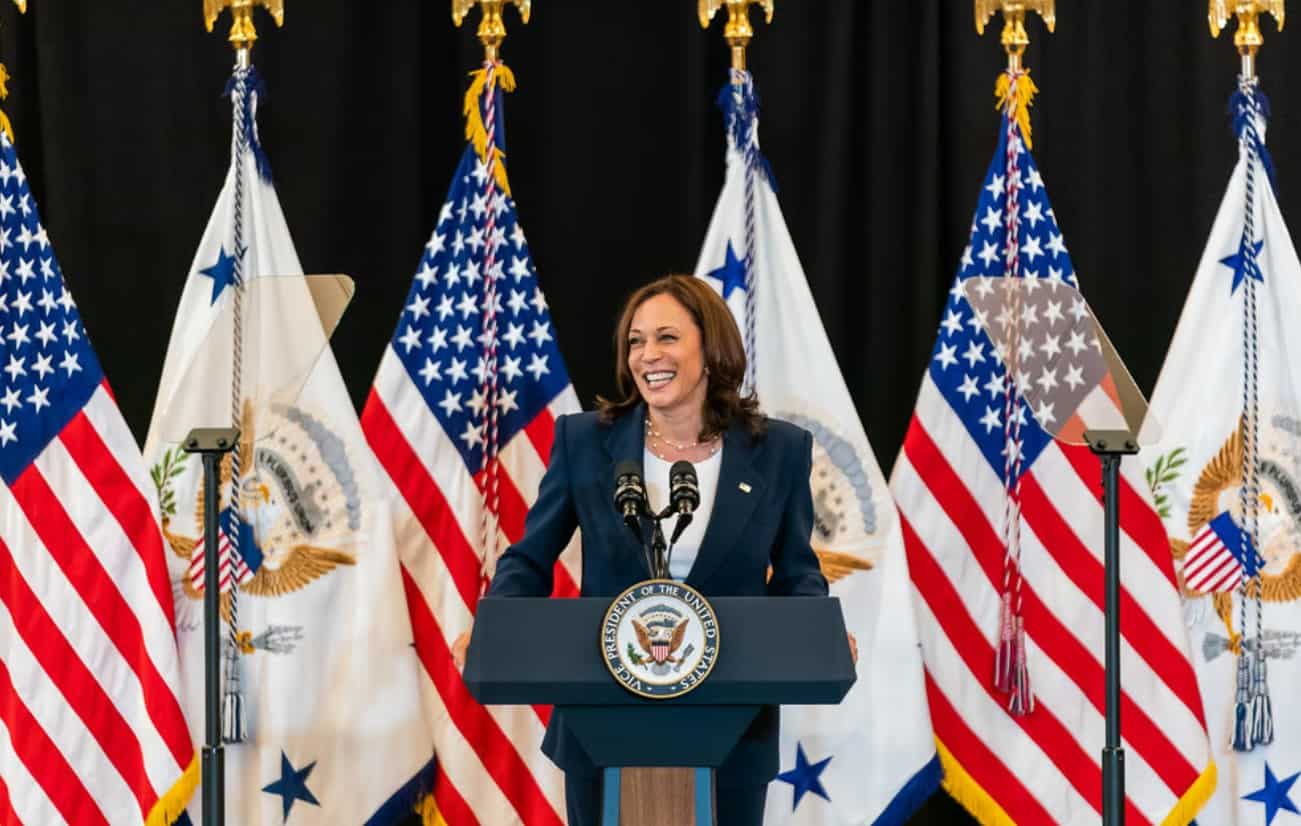There isn’t a simple answer.
We’re only 93 days away from the U.S. presidential election. At this point, it looks like it will be a tight race between presumptive Democratic nominee Kamala Harris and GOP nominee Donald Trump.
For many retirees, the candidates’ plans for Social Security will be paramount. How might your future Social Security cost-of-living adjustments (COLAs) be affected if Vice President Harris beats former President Trump?
A new COLA formula
Harris’ presidential campaign is still in its early stages. She hasn’t officially announced her plan for Social Security if elected. However, her public comments, previous votes as a U.S. senator, and proposals during her 2020 bid for the Democratic presidential nomination give a pretty good picture of the Social Security changes she would likely favor.
In 2019, Harris, then the junior U.S. senator from California, co-sponsored the Social Security Expansion Act. This proposed legislation called for changing the way Social Security COLAs are calculated.
Currently, COLAs use an inflation metric called the Consumer Price Index for Urban Wage Earners and Clerical Workers (CPI-W). This index has been criticized for not accurately reflecting the costs incurred by older Americans, especially healthcare. As a senator, Harris supported replacing the CPI-W with the Consumer Price Index for Elderly Consumers (CPI–E). As its name indicates, the CPI-E is designed to reflect the costs of older Americans.
In some years, the CPI-E would result in a lower Social Security COLA than the CPI-W would. However, the inflation metric would probably increase COLAs over the long run.
Inflation impact
Social Security COLAs are intended to help offset the erosion of benefits from inflation. Presidential policies can sometimes impact how high inflation rates are and, therefore, affect COLAs.
In one important way, Harris’ policies, should she be elected president, would be less inflationary than Trump’s. The former president has proposed imposing 10% tariffs on all imported goods and specific tariffs on Chinese imports of at least 60%. Harris has publicly criticized Trump’s proposal, stating, “His tariffs would increase the cost of everyday expenses for families.”
Many economists agree with her take. Sixteen Nobel Prize-winning economists signed a joint letter concluding that Trump’s proposed policies would “reignite” inflation. The non-partisan Peterson Institute for International Economics estimates that Trump’s tariffs would increase costs for a typical middle-class household by $1,700.
However, government spending can also cause inflation to rise. Some of the programs Harris has supported in the past could greatly boost federal spending. If government spending increased significantly, inflation would likely also increase, leading to higher Social Security COLAs.
Higher or lower Social Security COLAs under a Harris administration?
There’s an important factor we can’t leave out of the discussion about how Social Security COLAs could be affected if Harris beats Trump in November: the congressional races. Which party controls the U.S. Congress will be critical in whether either candidate’s proposals are implemented.
As of right now, the GOP appears to have an easier path to regaining control of the U.S. Senate, while Democrats have a slight edge in regaining control of the U.S. House of Representatives. Should Harris win the presidential race with a divided Congress, she would likely encounter significant obstacles in enacting changes to the Social Security COLA calculation and launching any substantial new federal spending initiatives.
What if Trump is elected with a divided Congress? He would also have a hard time getting proposed legislation passed. However, while Congress has the constitutional authority to levy tariffs, the president has some flexibility under various trade acts to impose tariffs temporarily.
The bottom line is that we can’t know how Social Security COLAs will be impacted if Harris becomes president because it depends on which party or parties control Congress. We’ll have to wait another 93 days to find out.

